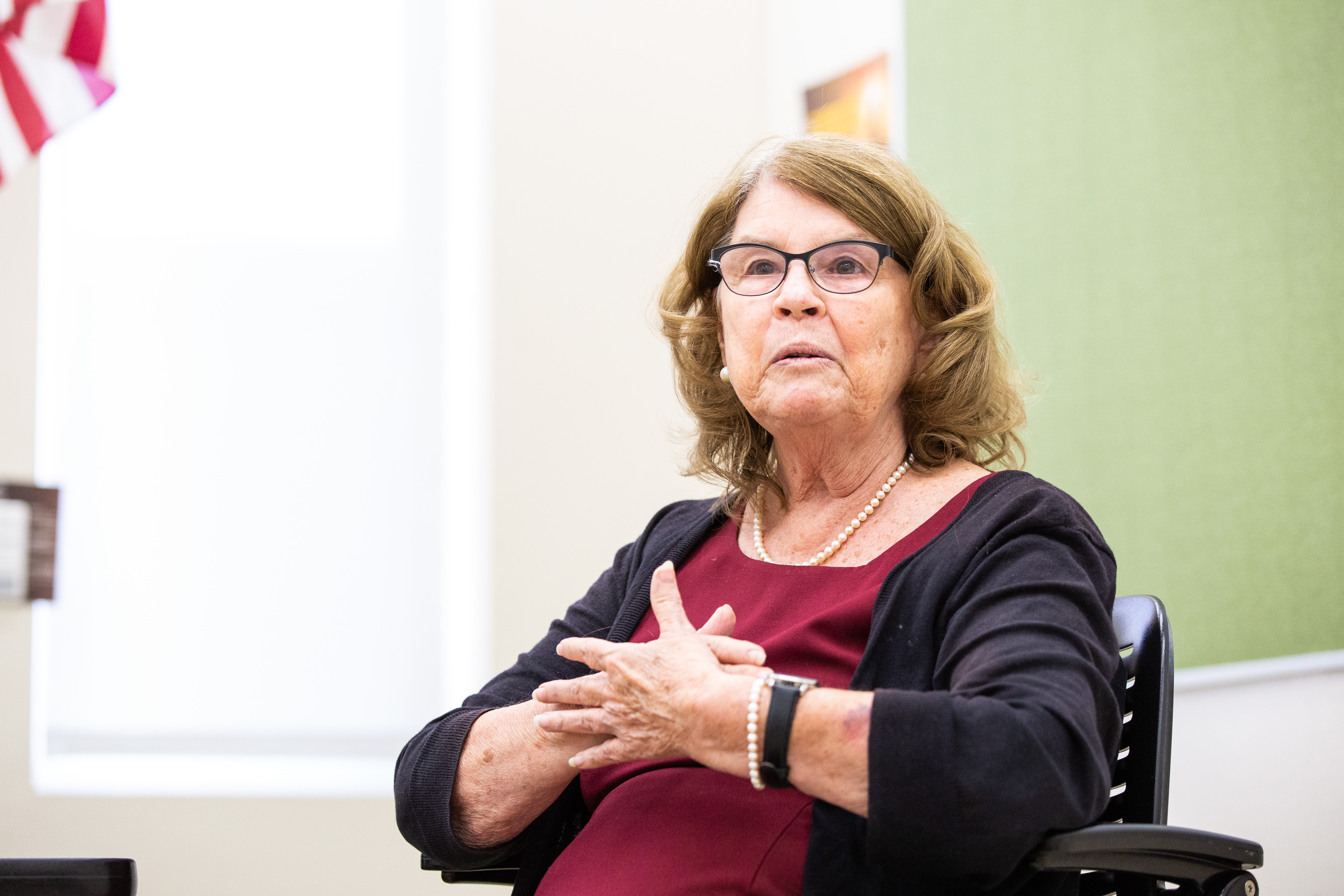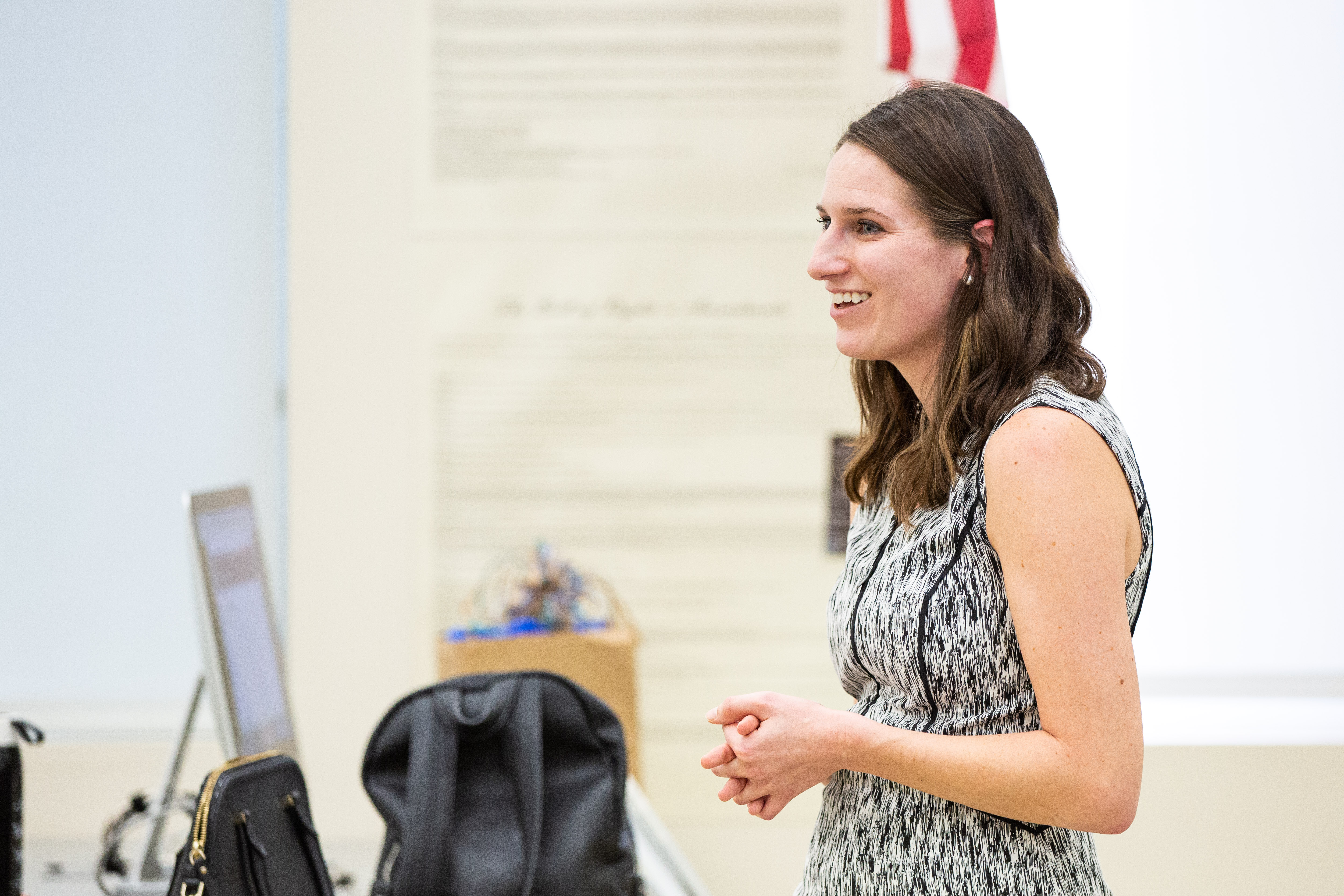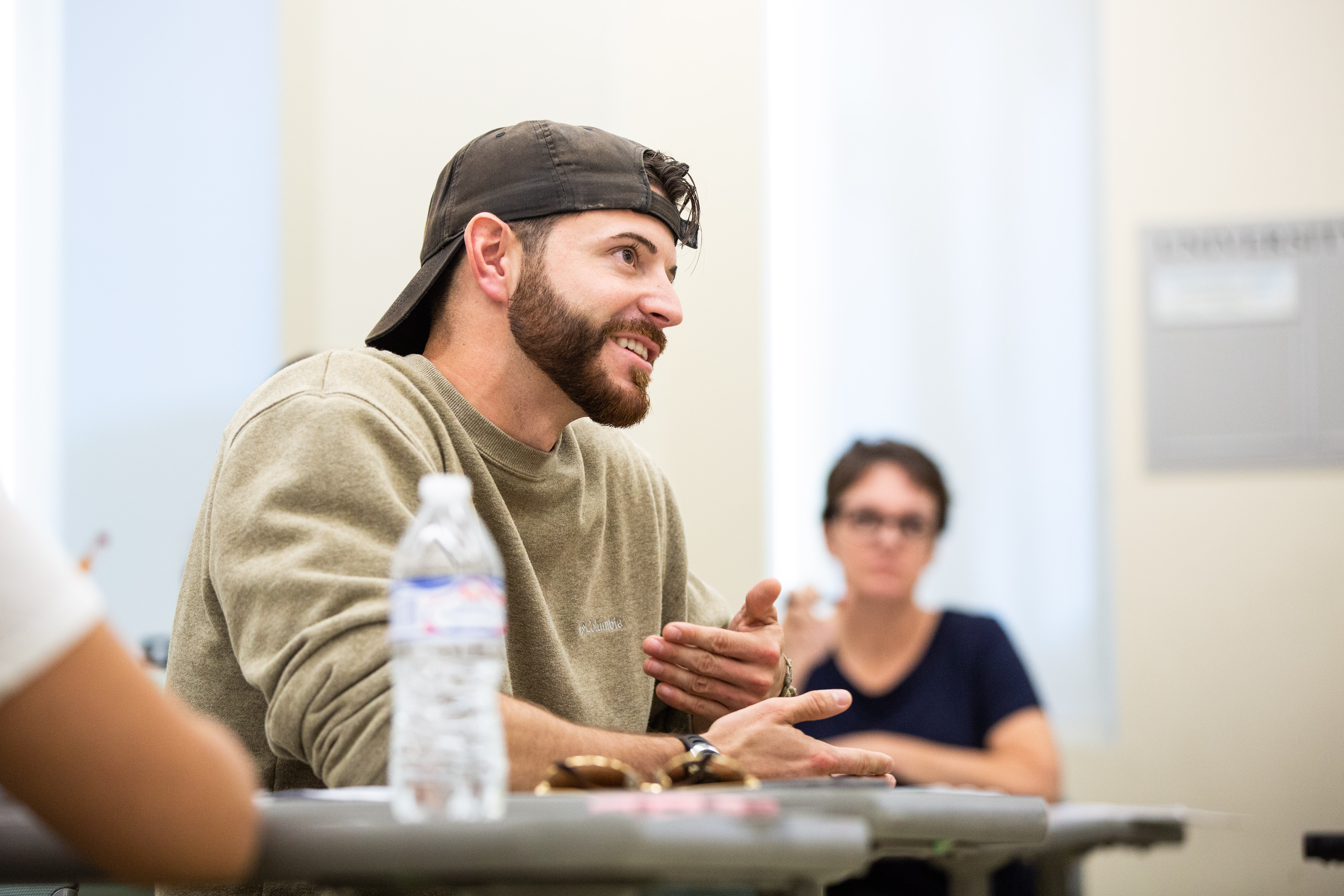Class on veterans focuses on their families and the value of support systems

Military personnel are often thought of as strong, adaptable and resilient men and women who make great sacrifices to protect our country.
While we shower our service members with praise and thanks, the families and loved ones who prop them up and support them during their careers often get overlooked.
But a class at Arizona State University looks at the culture and resilience of military families and the challenges they face through civilian transition, deployments, traumas or death.
“There’s a lot of issues that military families have to deal with, but there’s also a host of other things most don’t know about,” said M. Jennifer Brougham, an instructor in ASU’s T. Denny Sanford School of Social and Family Dynamics. “Everybody has different views about the military, but very few understand the actual struggles and complexities.”
That’s why Brougham created FAS 410: Military Family Systems in a Democracy (also refered to as Working with Military Families). As a former Army wife, Brougham said that based on some of her experiences, she understands the intimate challenges that military families face.
“I was married in 1970 to a second lieutenant in the United States Signal Corps, and three days later we went to Kaiserslautern, Germany,” Brougham said. “When we were over there, we didn’t have any base housing and so we lived in a remote German village. Talk about a culture shock.”
Understanding the military life
Brougham's class offers a combination of discussions, debates, guest speakers and internships to communicate and explore the difficult issues surrounding military families. Past students have come from human development, sociology, social work, criminal justice, gender studies, nursing, education, psychology and ROTC.

Instructor M. Jennifer Brougham leads a class discussion on service animals Oct. 24 during the course on military family dynamics. Photo by Deanna Dent/ASU Now
It’s that mix that makes the class special, said one former student.
“I went into the class with a number of biases,” said Charlie Blotner, who completed the course in 2016 and was one of the first students to receive a certificate for the program. “I did not grow up knowing much about the military and did not feel that I had a personal reason to learn more. I quickly realized how wrong of a stance that was to take and how important it was to be informed.”
Blotner, currently a second-year master of social work and health practice student at the University of Washington, said learning about families during deployment — the change in parental dynamics upon returning home, frequent school changes for children and the psychological impacts of these issues — particularly resonated with him.
“Military families are everywhere, and ignoring their specific traumas and needs would make me an unethical social worker,” Blotner said.
Blotner’s unfamiliarity with the military is not an anomaly. Ever since the United States switched from a draft system to an all-voluntary force, the public has become less familiar with service life. In fact, about eight out of 10 veterans say the American public doesn’t understand the problems faced by those in the military and their families.
“The biggest issue facing military families today are long deployments, and that was something we didn’t even go through in Vietnam,” Brougham said. “A friend of mine who is a lieutenant colonel and in nursing has five children … was never expected to get called up to serve overseas. She had to scramble to figure out how she and her husband were going to manage their household while she was away.”

Communication graduate student Alaina Veluscek introduces her research on military couples and affection during deployment. Her work focused on how writing could improve the satisfaction of relationships during deployment with naval officer families. Photo by Deanna Dent/ASU Now
Air Force Lt. Col. Christopher Padbury put it another way:
“Military families are under a lot of stress,” said the Air Force ROTC commander at ASU and a guest speaker in the class. “They’re constantly moving, their kids are constantly changing friends, and (they) are struggling to make ends meet.
He said a lot of the young airmen with families are on welfare because their income is low, and their salaries can’t cover all of their expenses. He said they often have to rely on the community and the military for support.
“A lot of them are just poor and they struggle,” Padbury said. “Some of them are afraid to ask for help and don’t know what’s available. The military is very good about educating these young families and getting them plugged in.”
Padbury said he sees great potential in Brougham’s students because they’ll be the ones offering support, guidance and counseling to military families.
Teaching the value of the support system
The dual class/certificate program took Brougham three years to develop. She learned of professional needs with military families at a conference on a military base and began dialogue and instruction with students in her Marriage and Family Growth courses. She then began discussing the needs of the families with ASU ROTC commanders and wrote a proposal in 2013 for a course in the Sanford School.
The program debuted in the fall of 2016 and this semester has doubled in size. The person responsible for greenlighting the class was Patrick J. Kenney, dean of the College of Liberal Arts and Sciences and a Foundation Professor in the School of Politics and Global Studies.
“A lot of times our faculty resonate directly with what they’re teaching, and in this program you have an instructor who has walked the walk,” Kenney said. “She was in a military family much of her life, and you can just feel it. There’s a passion and an experience there.”
Brougham has done some enlisting of her own for the course, recruiting Army Lt. Col. James Sink and Navy Capt. Andé Bergmann to impart their experience to the class this semester.

Psychology senior and Army veteran Joshua Hartnek ask questions of communication graduate student Alaina Veluscek during her presnetation Oct. 24. Photo by Deanna Dent/ASU Now
“I want her (Brougham's) students to understand the Army and that we’re people like everyone else and that we’re approachable,” said Sink, who heads up the Department of Military Science at ASU. “We want to understand the total soldier, and that includes his or her spouse, children and getting to know the issues that they may be having at home.”
Bergmann, the current commanding officer of the ASU Naval ROTC, said she wants students to understand the stress military leaders face.
“The military has the ability to put very young people in a very intense leadership position early on, where in a traditional place of employment you come in very junior,” said Bergmann, who was in charge of approximately 330 people during one job tenure on a ship.
The other myth she’d like to dispel is that the military is secretive.
“We’re not a secretive organization because we really don’t have anything to hide,” Bergmann said. “We are open and transparent in the decisions we make and what we do going forward.”
Steve Borden, director of the Pat Tillman Veterans Center, said the class also features several student veterans who contribute to the conversation.
“It’s like having a permanent guest speaker in the class because they can share that veteran perspective,” Borden said. “They still want to serve their communities and particularly want to help veterans.”
Borden could have been talking about Amanda Lewis, an Army reservist who has been deployed three times since 2007. She’s taking the class because she thinks it’ll enhance her next career as a marriage and family therapist for military couples.
“The military has helped me through two marriages, two divorces, and the military has always been there for me, whereas most people haven’t,” Lewis said. “It’s my goal to work with the veteran population, who are underserviced and misunderstood.”
Lewis said people who go into the military know they will have complex family issues and need support for them and their children from an understanding population.
“When people come up to me to thank me for my service, and if I’m with my children, I usually turn to them and say, ‘You can thank my kids because they’re the ones who sacrificed, not me,’” Lewis said. “This course has solidified what I’m going to do with my future.”
FAS 410 class highlights
- Class may be taken as an elective or work toward the certificate.
- The class is open to all majors from all disciplines.
- Classes are engaging and interactive with the community.
Top photo: Sam Muzzupappa, a senior in psychology, gets a kiss from Ellie, Navy veteran Keith Ender's service dog, after the Oct. 24 class on working with military families. Photo by Deanna Dent/ASU Now
In celebration of Veterans Day, Arizona State University proudly honors veterans and active members of the military through Salute to Service. Your support helps veterans succeed. Text ASUVets to 41444 to donate to the Veterans Education Fund or visit veterans.asu.edu to learn how you can honor a veteran.

